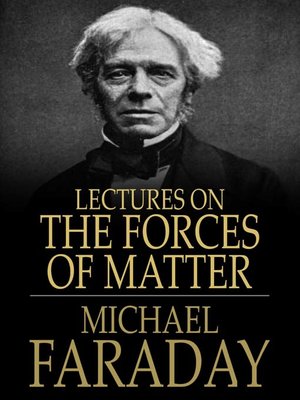
Sign up to save your library
With an OverDrive account, you can save your favorite libraries for at-a-glance information about availability. Find out more about OverDrive accounts.
Find this title in Libby, the library reading app by OverDrive.



Search for a digital library with this title
Title found at these libraries:
| Loading... |
The pleasure which all derive from the expositions of Faraday is of a somewhat different kind to that produced by any other philosopher whose lectures we have ever attended. It is partially derived from his extreme dexterity as an operator with him we have no chance of apologies for an unsucessful experiment, no hanging fire in the midst of a series of brilliant demonstrations, producing that depressing tendency akin to the pain felt by an audience at a false note from a vocalist. All is a sparkling stream of eloquence and experimental Illustration. We defy a chemist who loves his science, no matter how often he may have repeated an experiment, to feel uninterested when seeing it done by Faraday.
Which was first, Matter or Force? If we think on this question, we shall find that we are unable to conceive of matter without force, or force without matter. When God created the elements of which the earth is composed, He created certain wondrous forces, which are set free and become evident when matter acts on matter. All these forces, with many differences, have much in common, and if one is set free it will immediately endeavor to free its companions. Thus heat will enable us to eliminate light, electricity, magnetism, and chemical action; chemical action will educe light, electricity, and heat; in this way we find that all the forces in nature tend to form mutually dependent systems, and as the motion of one star affects another, so force in action liberates and renders evident forces previously tranquil.
We say tranquil, and yet the word is almost without meaning in the Cosmos; - where do we find tranquillity? The sea, the seat of animal, vegetable, and mineral changes, is at war with the earth, and the air lends itself to the strife. The globe, the scene of perpetual intestine change, is, as a mass, acting on, and acted on by the other planets of our system, and the very system itself is changing its place in space under the influence of a known force springing from an unknown centre.






